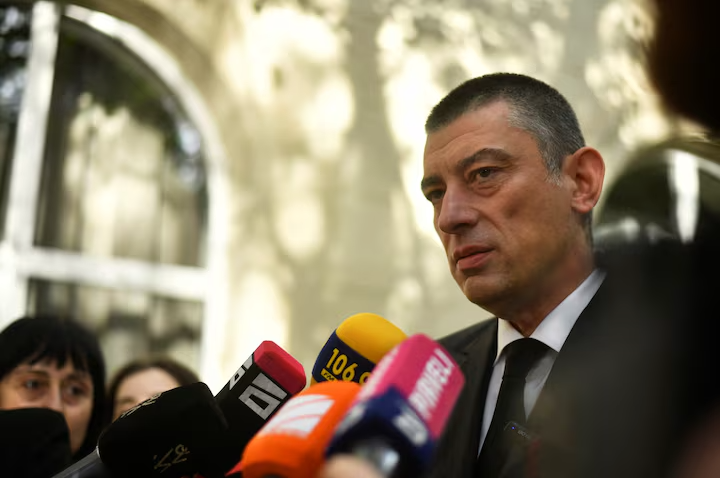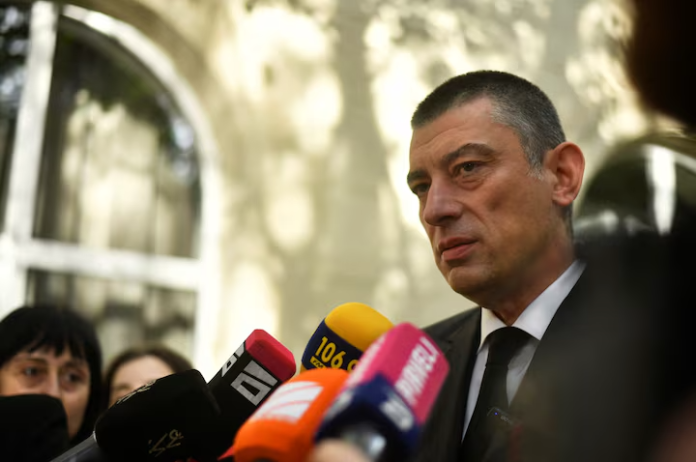Georgia’s ongoing political turmoil took a violent turn on Tuesday night when former Prime Minister Giorgi Gakharia was severely beaten in a hotel lobby in Batumi.
Gakharia, who now leads the opposition party For Georgia, was hospitalized with head and facial injuries following the attack. His party has condemned the incident as a politically motivated assault, blaming the ruling Georgian Dream (GD) government for fostering an environment where opposition figures are targeted.
A Coordinated Attack?
According to Ana Buchukuri, a spokesperson for For Georgia, the attack was carried out by multiple assailants in what she described as a “brutal and coordinated group assault.” Despite the severity of his injuries, Gakharia reassured supporters in a Facebook post that his condition was stable. His party has demanded a full investigation into the incident and called on the authorities to ensure the safety of opposition leaders.
The ruling Georgian Dream party has not yet responded to requests for comment. However, critics argue that the government’s inaction in previous cases of political violence has emboldened such attacks.
Growing Political Crisis in Georgia
Tensions in Georgia have been on the rise since the October parliamentary elections, which the opposition claims were rigged to favor Georgian Dream. The situation worsened in November when the government announced a freeze on European Union accession talks until 2028. This decision sparked widespread pro-EU protests, with demonstrators taking to the streets in Tbilisi and other cities, demanding fair governance and closer ties with Europe.
The government’s response has been forceful. Police crackdowns have led to hundreds of arrests, including that of Mzia Amaghlobeli, a prominent media director, who was detained on charges of assaulting a police officer. The European Union has called for her release, emphasizing that “impunity cannot prevail.”
International Condemnation

Western governments have expressed deep concern over the escalating violence in Georgia. The British and U.S. embassies have condemned attacks on opposition leaders, journalists, and protesters. British Ambassador Gareth Ward described the situation as “deeply disturbing,” while the EU delegation in Georgia has urged authorities to release detained demonstrators.
Rights organizations such as the Georgian Young Lawyers’ Association have also raised alarms, accusing Georgian Dream members of inciting violence and undermining democratic freedoms. The group’s statement criticized the government’s “ineffective response” to political violence and its failure to prosecute those responsible for attacks on opposition figures.
A Pattern of Violence
Gakharia’s assault is not an isolated incident. In December, Nika Gvaramia, leader of the Coalition for Change party, was knocked unconscious during a police arrest in Tbilisi. He was later sentenced to 12 days in jail for “petty hooliganism.” These repeated acts of aggression against government critics have heightened fears that Georgia is slipping into authoritarian rule.
Meanwhile, Buchukuri confirmed that For Georgia has requested security footage from the Batumi hotel where the attack took place, urging law enforcement to identify and prosecute those responsible. However, given the government’s track record, many are skeptical that justice will be served.
As Georgia stands at a crossroads between democracy and political repression, the attack on Gakharia has become a symbol of the country’s deepening crisis. With international pressure mounting, the question remains: will the government take steps to restore democratic integrity, or will political violence continue unchecked?



